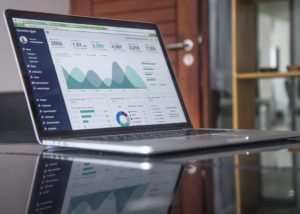Sales Tax 101 On-Demand Webinar
90-minute on-demand sales tax 101 webinar teaching introductory fundamentals you need for any sales and use tax management.
If you have any experience working with sales tax, you’re aware that trying to manage the entire process can get complicated fast.
Sales tax is a team sport – you can’t do it on your own. Sales tax departments need to collaborate with and gather data from other departments like sales, manufacturing, and distribution to get a handle on the “big picture” when it comes to sales tax administration. As with many things in the accounting, tax, and financial arena, one of the first steps to administer sales tax correctly is gathering the right data to make decisions.
We have identified 6 key categories of data you need to successfully manage the sales tax administration process. Within each of these categories are crucial pieces of information that you may not be aware of – information that you need to gather to ensure that you correctly manage the entire spectrum of sales and use tax administrative responsibilities.

Nexus is one of the first and most important concepts you need to understand in the world of sales tax management. In short, nexus is the level of connection between your business and a taxing jurisdiction and is what determines in which jurisdictions (states, cities, etc.) you are required to collect and remit sales tax.
In order to determine where you have nexus, you need to gather some information. The types and amount of information you need will vary by state and depend on which types of nexus legislation the states have enacted. In all states that have a sales tax, physical presence is the first consideration for determining nexus. You need to know where your company has property in a state or people acting on the company’s behalf in a state.
Beyond physical presence, you must research which types of nexus legislation you must comply with in the states you do business: economic nexus, marketplace nexus, click-through nexus, affiliate nexus, and reporting requirements legislation.
Here are a few (but not all) of the questions you need to ask yourself to determine your nexus exposure:
The last four questions are particularly noteworthy in light of the sales tax landscape resulting from the Supreme Court’s decision in South Dakota v. Wayfair. The Court’s decision struck down the physical presence requirement that was the previous standard bearer for determining whether a seller has nexus in a state. However, it has not eliminated the need to determine if you have physical presence in a state. That will still create nexus – regardless of your sales into the state.
In the wake of the Wayfair decision, states across the country have enacted economic nexus and marketplace nexus requirements for out-of-state sellers, which includes online sellers. Both economic and marketplace nexus legislation set sales thresholds that sellers or marketplace facilitators must exceed to create nexus in a state.
You must continually track data regarding your sales levels, both dollar amount and number of transactions, in the states where you do business to determine if you have created nexus. A common threshold states have set is $100,000 in sales or 200 separate sales transactions.

If you establish nexus for sales tax purposes, your next step is to register to collect and remit sales tax in that jurisdiction. Before you get started on the registration application, there are some key pieces of information you need to gather. Consider these items:
The information you submit on a sales tax registration can have far-reaching implications for your administration and compliance, so you’ll want to pay special attention to the questions that are asked and gather the correct information as needed.

Next, you need to determine the taxability of the products or services that you sell. There are many factors that go into correctly determining the taxability. Here are a few of the most important questions that will help you determine the correct taxability:
Gathering the information to answer the above questions is one of the most critical steps in sales tax administration and compliance. You must know the taxability of your products and services in order to charge (or not charge) sales tax correctly on each and every sale. Misclassifying the taxability of your products and services due to mistakes in gathering the necessary information can lead to big problems down the line – especially in the case of an audit.

Once you register to collect and remit sales tax in a jurisdiction, it is vital that you stay on top of processes that keep you compliant. A major part of ongoing sales tax compliance is correctly putting your tax returns together. A few of the key data points you need to file accurate returns are:

As part of your duties in the tax department, it is very likely that you need to submit reports to management. To demonstrate the importance of the sales tax department’s work and the impact on the company’s finances, there are some key items you should monitor:

As your company’s business grows, sales tax responsibilities grow in tandem. You may reach a point where the work necessary to keep your company compliant exceeds the capacity of the sales tax department (particularly if you are a department of one!). Here are some questions to ask yourself to determine if extra hands are needed or how responsibilities may need to be shifted.
Gathering data on these questions can help you build the case for the additional resources your department needs. Present your data to management to discuss the right option for your company, whether that’s additional in-house employees or outsourcing certain parts of your sales tax compliance, like monthly returns.

Gathering the right information is just one key piece of the puzzle when it comes to sales tax administration and compliance. Staying on top of sales tax administration can be overwhelming, and some expert advice can go a long way in getting a grip on your responsibilities.
 About the Author:
About the Author:Diane L. Yetter is a strategist, advisor, speaker, and author in the field of sales and use tax. She is president and founder of YETTER Tax and founder of the Sales Tax Institute. You can find Diane on LinkedIn and Twitter.